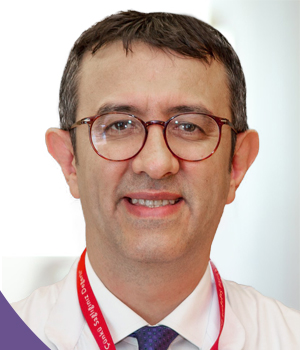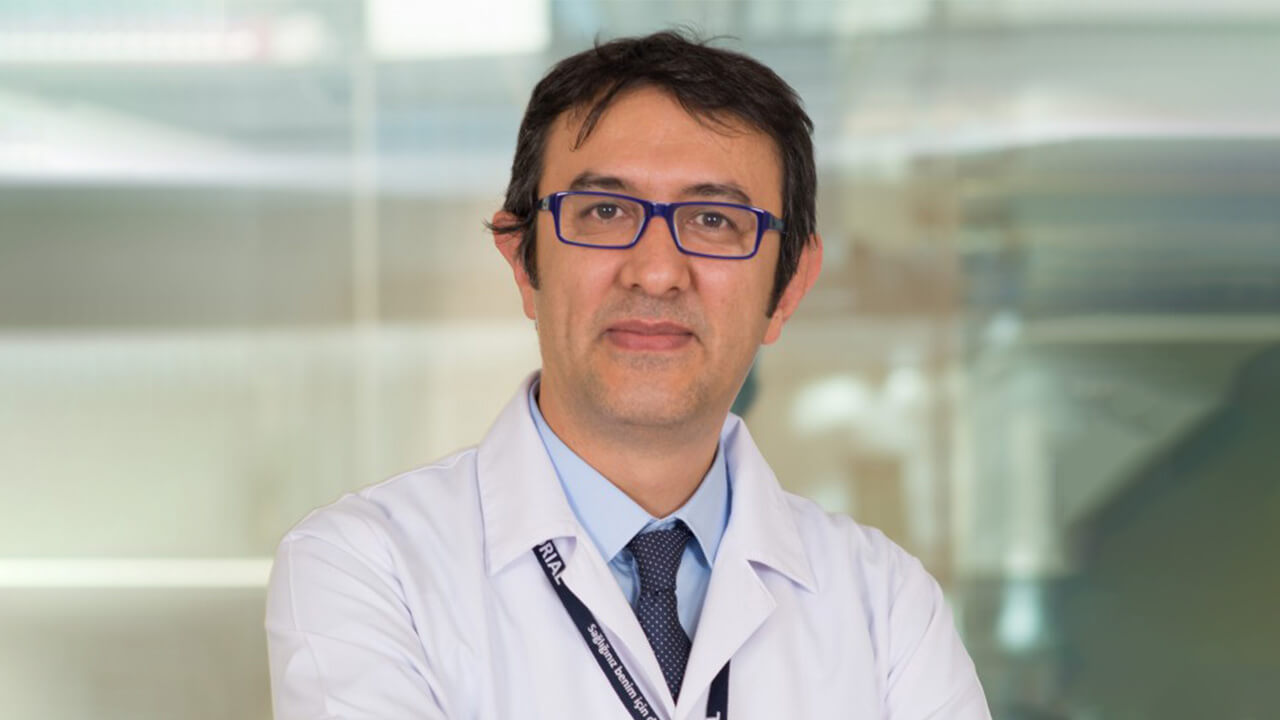"The oral or intravenous administration of the right drug for the disease in a cancer patient alone cannot be considered a success. The secret lies in love and respect for the person. The effort to inspire hope, as well as the trust of the patient himself and his family, are also integral to successful treatment."
— проф. д-р Серкан Кескин
Проф. д-р Кескин съчетава високотехнологичните методи на съвременната онкология с дълбоко хуманен подход към пациента. Неговата практика се основава на иновативни, персонализирани терапии, които повишават ефективността на лечението и минимизират страничните ефекти.
Methods of treatment
Генетично картографиране на тумора
Иновативен метод, който позволява избор на най-подходящото индивидуално лечение, чрез анализ на раковите клетки в кръвна или тъканна проба. За разлика от генетичното тестване, което оценява риска от унаследяване, картографирането цели ефективна терапия, базирана на структурата и поведението на самия тумор.
Таргетна терапия с „умни лекарства“
Модерен метод, при който се прилагат медикаменти, насочени директно към туморните клетки, без да увреждат здравите тъкани. Благодарение на информацията от генетичното картографиране, се подбира най-подходящият медикамент.
Умните лекарства могат да бъдат:
- С малки молекули – проникват във вътрешността на туморната клетка
- С големи молекули – атакуват клетката отвън чрез насочващи агенти
Подходящи за лечение на:
- Хронични левкемии
- Breast cancer
- Колоректален карцином
- Главо-шийни тумори
- Други солидни тумори, в зависимост от резултатите от картографиране
Chemotherapy
Класически, но все още ефективен метод за системно лечение на ракови заболявания. Прилага се самостоятелно или в комбинация с таргетна и имунотерапия.
Immunotherapy (biological therapy)
Модерен подход, който активира собствената имунна система на пациента, за да разпознае и унищожи раковите клетки.
- Подходяща при: леки до умерени стадии, пациенти с генетични мутации, напреднали случаи
- Прилага се чрез венозно вливане на всеки 2–3 седмици
- Често използвана при: рак на пикочния мехур, мозъчни тумори, рак на гърдата, шийката на матката, яйчниците, дебелото черво, бъбреци, черен и бял дроб, простата, левкемии, лимфоми
Преимущества на съвременните терапии
- По-малко странични ефекти
- По-добра поносимост от пациента
- По-дълга преживяемост без прогресия
- По-високо качество на живот по време на лечение
Клинични данни сочат, че при пациенти, подложени на таргетна терапия, преживяемостта без прогресия достига 11 месеца – почти двойно повече, отколкото при стандартна химиотерапия.










